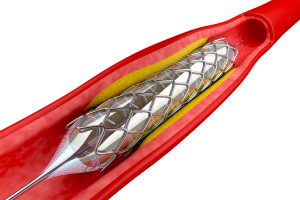All manufacturers are expected to establish some form of quality protocols to ensure that products meet a minimum standard, whether that threshold is established by general expectations or by regulators. Naturally, manufacturers of medical devices are held to a higher benchmark than producers operating in most other markets. Various regulators have established frameworks that set out minimum levels of quality in the design and production of medical devices, but in the US, it is the Food and Drug Administration (FDA) that primarily governs medical device quality via their umbrella approach to good manufacturing practices (GMP).
What is GMP and How Does it Apply to Medical Devices?
Good manufacturing practices are a set of formal specifications established by the FDA and other global regulators with the goal of setting a minimum quality benchmark for products in critical markets. Sometimes referred to as current good manufacturing practices, or cGMP, these standards are a flexible set of requirements designed to ensure that all medical devices released to market are safe and effective.
According to the FDA, a medical device constitutes:
“An instrument, apparatus, implement, machine, contrivance, implant, in vitro reagent, or other similar or related article, including a component part, or accessory which is…intended for use in the diagnosis of disease or other conditions, or in the cure, mitigation, treatment, or prevention of disease.”
So the remit of GMP medical devices runs a wide gamut, from simple personal protective equipment (PPE) like surgical masks, through to high-technology implantables, such as valves or stints. This makes it impossible for a single regulator to set-up individual good manufacturing practices for each product type—hence the aforementioned umbrella approach.
What is the Umbrella Approach of GMP Medical Devices?
The umbrella approach to cGMP refers to the flexibility embedded into the FDA’s quality protocols. It is less a series of prescribed standards and more a framework mandating that manufacturers develop and follow their own quality protocols appropriate for a given device, using state-of-the-art manufacturing techniques and acceptable QA/QC parameters. This means that a GMP program will influence every step in the medical device development chain, from employee hygiene through to record-keeping.
Developing Good Manufacturing Practices with Jordi Labs
At Jordi Labs, we have years of experience working to exceed the necessarily strict regulatory standards for medical device manufacturing, offering GMP-compliant analytical services. Our goal is to help customers ensure due-diligence is carried out throughout the manufacturing pipeline to eliminate any margin of error and guarantee good manufacturing practices are adhered to. We achieve this by offering complex GMP-compliant solutions which can add value to your production cycles by providing actionable data where you need it most. This not only saves you time and money on costly product recalls and speculative QA/QC testing, but ensures you routinely go beyond the minimum requirements to provide highly safe and effective medical devices.
Source:
